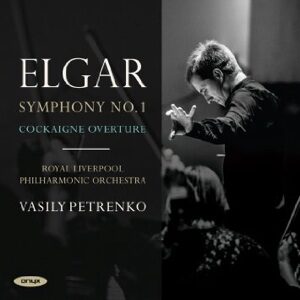I have no doubt that if the sun were to die out and there was just enough energy left to launch an interstellar mission to save humanity, the British recording industry would scuttle the whole project to use the scarce remaining resources to record another Elgar series. No sacrifice would be too great. Now consider the Onyx website, which claims, admirably, “These days it is hard to re-kindle the excitement felt in the heady days of the LP and early years of the CD. ‘More of the same’ is no longer enough, and it does not need to be like this. ONYX records world-renowned artists in their prime in music that suits them best.” Really? Except when it comes to Elgar, evidently. If this isn’t “more of the same”, then what is?
Maybe I missed something, but I don’t recall seeing satellite photos of the crowds lined up around the world, waiting for Petrenko’s Elgar to be released. Indeed, it hasn’t been all that well received in England, not that this matters particularly. David Fanning, in The Telegraph, damned Petrenko’s 2011 Elgar Second with vanishingly faint praise, claiming that there was never “any danger of stereotypical Slavonic emotional excess.” Now as Her Majesty’s rebellious ex-subjects all know, this vague compliment is in fact stereotypical British review-speak. English critics generally detest anything in a performance that might make them pay attention to it. Indeed, that bit of “stereotypical Slavonic emotional excess” is just what this performance of the First Symphony could have used.
The introduction begins swiftly and cooly, without a trace of Elgar’s distinctive “nobilmente”. True, the start of the allegro brings a rush of excitement, but as the argument proceeds the overall lightness of tone becomes tiresome. After figure 46, with the strings triple forte, the trumpets “molto crescendo e vibrato”, and the horns wild run up the scale, the mood should be one of uninhibited panic. There’s no denying the technical security of the playing, but the expressive intensity just isn’t there. Things go better in the scherzo, as you might expect from the crispness of the ensemble, but the Adagio flows without much intimacy or passion, and in the finale we’re back to where we started: quick, light, and at the end devoid of that epic satisfaction (Elgar used the word “massive”) that justifies the investment of 50 minutes of your valuable time.
Cockaigne comes from the same stock as the symphony. Clean ensemble, lively tempos, but a curious feeling of stasis in the dreamy central episodes, and climaxes that lack the requisite healthy vulgarity (or “stereotypical Slavonic emotional excess”). The truth is that Elgar’s music is full of passionate intensity–that’s why the British love him so much, and it’s what the best performances have in abundance. These versions, clean and clear as they undoubtedly are, and well recorded to boot, just don’t get there. It wasn’t worth the death of the human race to release them.
































